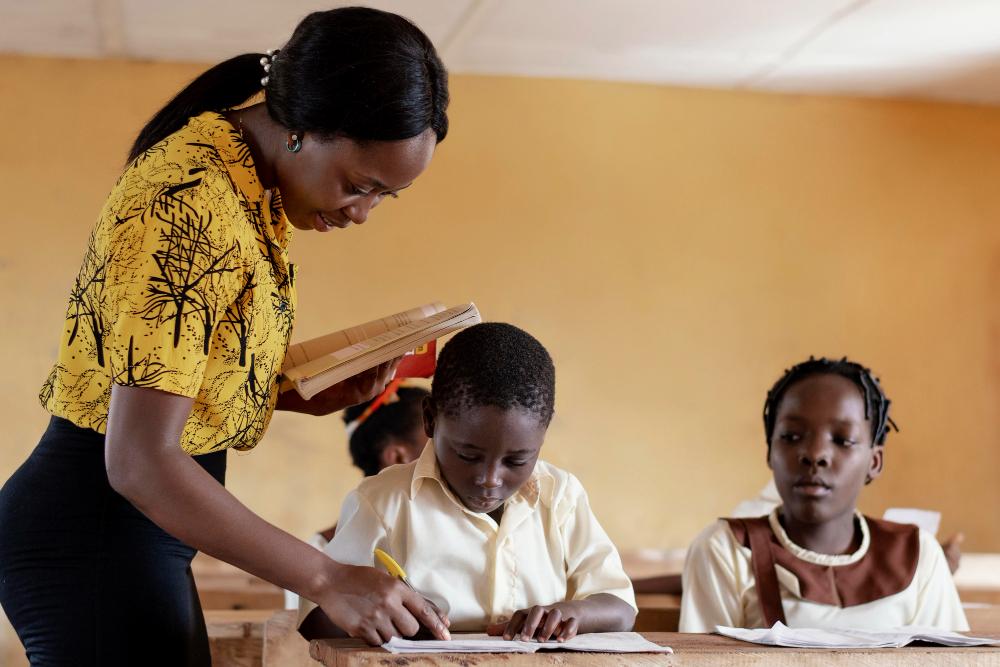In Nigeria, where education is often described as the bedrock of national development, persistent gaps in funding, oversight, and community participation continue to limit the success of Universal Basic Education (UBE) programs. In response to these challenges, Human Development Initiatives (HDI) has emerged as a driving force in promoting transparency, accountability, and participatory governance, particularly in the basic education sector.
Through innovative civic engagement programs and grassroots monitoring, HDI is equipping communities to take ownership of their schools, advocate for better learning conditions, and hold public institutions accountable. This article explores how HDI Nigeria is bridging the gap between policy and practice by empowering everyday citizens to be champions of educational reform.
The Crisis in Basic Education
Despite the existence of the UBE Act and significant government investment, millions of Nigerian children remain out of school, while many who are enrolled experience substandard learning environments. Issues such as dilapidated infrastructure, teacher absenteeism, mismanaged funds, and poor learning outcomes are common in many parts of the country.
While legislation exists to promote free and compulsory basic education, the implementation is often marred by corruption, inefficiency, and a lack of transparency at the grassroots level.
This is where HDI’s intervention becomes both timely and transformative.
Building Capacity for Community-Led Accountability
HDI Nigeria believes that active citizen participation is key to holding duty bearers accountable. Through its Education Governance and Accountability Program, the organization trains community members—including parents, teachers, youth, and traditional leaders—to monitor educational projects and advocate for improvements in their local schools.
These community monitors are taught how to track UBE funds, analyze school budgets, and report cases of mismanagement or neglect. They are also trained in Freedom of Information (FOI) processes, empowering them to request public documents and engage with policymakers based on evidence, not emotion.
This community-led approach transforms ordinary citizens into watchdogs and stakeholders, ensuring that public education serves the people it was intended for.
Tracking UBE Funds and School Projects
One of HDI’s notable initiatives involves tracking the utilization of UBE funds allocated by the Universal Basic Education Commission (UBEC) and state SUBEBs (State Universal Basic Education Boards). HDI works with civil society coalitions and development partners to conduct budget analysis and publish findings on school infrastructure projects, teacher recruitment, and learning materials.
For example, suppose funds are allocated to build a classroom block in a public school in Lagos. In that case, HDI’s monitoring team visits the site, interviews stakeholders, and assesses the status of implementation. Delays, fraud, or substandard work are documented and publicly reported, often leading to corrective action by the authorities.
By shining a light on the flow of education funds, HDI helps to reduce opportunities for corruption and ensures that resources reach the intended beneficiaries—Nigeria’s children.
Bridging the Gap Between Communities and Government
A critical part of HDI’s strategy is fostering dialogue between communities and government agencies. The organization facilitates town hall meetings, stakeholder forums, and advocacy visits where parents and youth can express concerns directly to education officials.
These platforms have led to improved responsiveness from policymakers, stronger school management systems, and in some cases, the reinstatement of misused funds. HDI also pushes for systemic reforms such as better policy implementation, timely budget releases, and enforcement of school standards.
This level of engagement builds trust and encourages a collaborative model of governance, rather than an adversarial one.
Raising Awareness Through Media and Advocacy
HDI amplifies its accountability campaigns through radio programs, newspaper articles, and digital media. These efforts not only raise awareness about education rights but also mobilize public opinion around the need for transparent governance.
The organization regularly issues accountability reports and policy briefs that highlight best practices and systemic bottlenecks, influencing national and state-level education policy discussions.
The Results: Empowered Citizens, Stronger Schools
HDI’s work in education governance has led to tangible results: improved school infrastructure, increased teacher attendance, greater parental involvement, and more responsive government agencies. Communities that were once passive now actively demand quality education for their children.
In Lagos and beyond, HDI’s approach has demonstrated that when citizens are empowered with information and tools, they can play a crucial role in sustaining development and curbing corruption.
Conclusion: A Blueprint for Educational Transformation
In a country where educational outcomes are closely tied to governance and equity, HDI Nigeria offers a powerful model for change. By placing the community at the heart of accountability efforts, the organization is helping to build a future where every child has access to quality basic education, free from the constraints of neglect and mismanagement.
As Nigeria continues to strive toward its Sustainable Development Goals (SDGs), the role of civil society organizations like HDI cannot be overstated. They are not just watchdogs; they are enablers of hope, fairness, and systemic reform.




